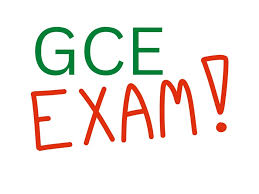GCE Guide: Everything You Need to Know About Cambridge O and A Levels
Are you looking for a GCE Guide that covers Cambridge O Level and A Level exams? Explore subjects, study resources, mark schemes, and tips for exam success.
For students worldwide preparing for the General Certificate of Education (GCE), having a comprehensive GCE Guide is essential. Whether you’re taking Cambridge O Levels, Advanced Level (A Levels), or Cambridge International AS, this guide covers everything from exam structure and subject choices to practical skills and study resources. Let’s explore how to prepare effectively and succeed in your GCE examination journey.
SEE ALSO: How to Use Khan Academy SAT Prep to Ace Your Exam in 2025

What Is the GCE?
The General Certificate of Education is an internationally recognized academic qualification that includes two levels:
- O Level (Ordinary Level) – Typically taken by students in secondary education.
- A Level (Advanced Level) – Suitable for students preparing for university or future career paths.
Administered by boards like Cambridge International Examination (CIE), the GCE is widely accepted by leading universities and employers around the world.
SEE ALSO: When is WAEC Starting? – Full Guide to WAEC 2025 Exam Dates and Timetable
Cambridge O Levels vs. A Levels: What’s the Difference?
Understanding the difference between Cambridge O Levels and A Levels helps you choose the right path for your academic goals.
| Criteria | O Level | A Level |
|---|---|---|
| Level | Secondary Education | Post-secondary Education |
| Duration | 2 years | 2 years |
| Focus | Broad foundational subjects | In-depth specialization |
| Examples | English, Mathematics, Environmental Management | Level Physics, Business Studies, Mechanics |
Choosing the Right Subjects: GCE Pathways and Combinations
Your subject selection should align with your intended university course or career path. Popular subject combinations include:
- Science Track: Mathematics, Chemistry, Level Physics, Biology
- Arts Track: Literature, History, Classical Studies, English General Paper
- Commerce Track: Business Studies, Accounting, Economics, Communication Technology
Understanding JAMB subject combination (for Nigerian students) or your local admissions requirement is crucial to your success.
Cambridge International AS and A Levels: A Deep Dive
The Cambridge International AS and A Level programs focus on main theoretical concepts, creative thinking, and advanced practical skills. Each subject is assessed through various question papers, mark schemes, and examiner reports.
The structure typically includes:
- AS Level (first half of the course)
- A2 Level (second half, completes the A Level)
Subjects are evaluated through written exams, timetabled practical examination, and oral assessments in some languages.
SEE ALSO: SAT Exam Syllabus: A Comprehensive Guide to What You Need to Know
Preparing for GCE Exams: Study Tips and Resources
Succeeding in your GCE exams requires a blend of discipline and access to the right tools. Here’s a resource guide to help you get started:
1. Use Official Cambridge Resources
- Latest past papers and 2023 papers
- Mark scheme and examiner reports
- Grade boundaries to understand scoring
2. Explore Online GCE Communities
- Websites and forums offering awesome study resources
- Join study groups discussing novel contexts and question trends
3. Master Practical and Theory
Subjects like Level Physics, Physical Education, and Environmental Management require a balance of practical skills and theory.
GCE Exam Assessment and Scoring
GCE exams focus on evaluating:
- Learners’ understanding of core subjects
- Application of knowledge to novel contexts
- Use of creative thinking and reasoning
Each paper is marked based on a strict mark scheme, and grade boundaries are published to reflect performance levels.
SEE ALSO: JAMB Exam Format 2025/2026 | How to Answer Questions
Useful Tools for GCE Candidates
- Storage apps for organizing notes
- Flashcards for main theoretical concepts
- GCE calculators and data tables
- Comment data from forums to see common exam challenges
Registration and Examination Process
To register for GCE exams, students must:
- Choose their exam board (e.g., CAIE)
- Select their exam center
- Complete the registration process
- Pay applicable fees
You’ll receive an exam timetable, ID number, and subject codes. On the exam day, bring your ID, timetable, and required materials.
SEE ALSO: UNICAL Orders Resumption for New Session 3 Days After Exams
Results and Certification
Results are typically released online a few weeks after the final examination. Candidates can log in to the official Cambridge International Examination website using their credentials to:
- View results
- Download e-certificates
- Review examiner reports (if available)
The admission letter or certificate is crucial for applying to tertiary institutions or pursuing post graduate programs.
GCE and University Admissions
Many universities accept GCE qualifications as part of their admission requirements. Ensure that your selected subjects meet the prerequisites of your desired course or institution. Check with:
- The university’s admission portal
- Your local matriculation board
- The Joint Admission and Matriculation Board (JAMB) if applying in Nigeria
SEE ALSO: Is GCE Registration Still On: Here’s What You Need to Know
Frequently Asked Questions (FAQs)
What are the most common search terms for GCE?
Students often search for GCE guide, latest past papers, mark scheme, Cambridge O Levels, and examiner reports.
What are some related subjects in the GCE syllabus?
Subjects include Environmental Management, Creative Thinking, Global Perspectives, Mechanics, and Classical Studies.
Can I use GCE for Direct Entry?
Yes. Students with A Level qualifications can apply for Direct Entry into many universities.
Are there differences between local and international GCE exams?
Yes. International exams like Cambridge International AS and A Level are more globally recognized and follow CAIE standards.
How to Access GCE Papers and Resources
Several platforms offer GCE learning materials, including:
- The official Cambridge website
- GCE-specific resource platforms
- Bookstores with resource guides
Use these to access the question paper, solutions, examiner reports, and mark schemes for better preparation.
SEE ALSO: When is GCE Second Series Starting 2025
Final Thoughts on GCE Guide
This GCE Guide serves as a roadmap for navigating the world of Cambridge O Levels and A Levels. From subject selection and preparation to accessing results and progressing to higher education, a clear understanding of the GCE system is vital for your academic success.
Whether you’re aiming for secondary education certification or planning your next step toward university, the GCE examination system equips you with the necessary skills, practical knowledge, and global recognition to thrive.
Stay updated with the latest GCE announcements, practice regularly using question papers, and make use of awesome study resources to stay ahead. Good luck with your academic journey!






